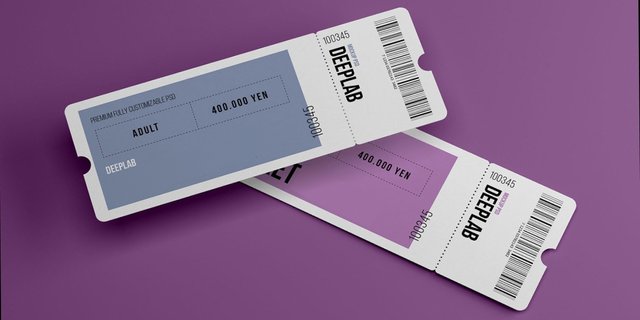
Introduction
NFTs are making their way into the realm of ticketing, transforming the way event-goers access and experience live events. In this article, we will explore how NFT ticketing is becoming a game-changer for event-goers and revolutionizing the event industry.
The Traditional Ticketing System's Challenges
Traditional ticketing systems have long been plagued with various challenges. Scalpers and resellers often exploit the system, driving up ticket prices and leaving genuine fans empty-handed. Counterfeit tickets also pose a significant problem, leading to frustration and disappointment for both event organizers and attendees. Additionally, the lack of transparency in the ticketing process can result in a lack of trust among event-goers.
Enhanced Security and Authentication
NFT ticketing addresses many of the challenges faced by traditional ticketing systems. By leveraging blockchain technology, NFTs provide enhanced security and authentication features. Each NFT ticket is linked to a unique digital identifier stored on the blockchain, ensuring its authenticity and preventing counterfeiting. This immutable and transparent nature of blockchain technology instills confidence in event-goers, knowing that their tickets are genuine and cannot be duplicated.
Elimination of Scalpers and Resellers
One of the most significant advantages of NFT ticketing is the potential elimination of scalpers and resellers. Since each NFT ticket is tied to a specific individual or digital wallet, it becomes incredibly challenging for scalpers to exploit the system. This ensures that event-goers have a fair chance to purchase tickets at face value directly from the organizers. The decentralized nature of blockchain technology also removes intermediaries, reducing ticketing fees and making events more affordable for fans.
Additional Benefits for Event-Goers
NFT ticketing offers several additional benefits that enhance the overall experience for event-goers. Firstly, it allows for seamless ticket transfers between individuals, providing flexibility and convenience. This means that if a ticket holder can no longer attend an event, they can easily transfer their ticket to someone else without any hassle. Moreover, NFTs can be programmed with smart contracts, enabling event organizers to offer unique perks and rewards to ticket holders, such as exclusive merchandise, backstage access, or meet-and-greet opportunities.
Collectible and Memorabilia Value
NFT ticketing also introduces a new dimension of collectibility and memorabilia value to event tickets. Since each NFT ticket is a unique digital asset, it holds inherent value beyond just granting entry to an event and sometimes can even be sold on NFT marketplaces if the users intends to. Some event organizers collaborate with artists to create limited-edition NFT tickets that double as digital artwork. This allows event-goers to own a piece of digital memorabilia associated with their favorite events, which can appreciate over time, similar to traditional collectibles. This adds an exciting element for event-goers who appreciate the value of unique digital items.
Enhanced Accessibility and Global Reach
NFT ticketing opens up new possibilities for event accessibility and global reach. With traditional ticketing systems, physical tickets can be limited in quantity and availability. However, NFT tickets exist in the digital realm, making them easily accessible to anyone with an internet connection. This means that individuals from around the world can participate in events without being restricted by geographical barriers. NFT ticketing also enables event organizers to host virtual events that can be accessed by a global audience, expanding the reach and impact of their offerings.
Transparency and Data Analytics
Blockchain technology, which forms the foundation of NFT ticketing, brings transparency to the ticketing process. Every transaction and transfer of an NFT ticket is recorded on the blockchain, creating an immutable and transparent ledger. This transparency allows event organizers to gain valuable insights into ticket sales, attendee demographics, and consumer behavior. By analyzing this data, organizers can make informed decisions regarding event planning, marketing strategies, and audience engagement, ultimately enhancing the overall event experience.
Sustainability and Environmental Impact
Another advantage of NFT ticketing is its potential to reduce the environmental impact associated with traditional ticketing methods. Physical tickets require the use of paper, ink, and other resources, leading to deforestation, waste generation, and carbon emissions. NFT tickets, being purely digital, eliminate the need for physical materials and the associated environmental footprint. By embracing NFT ticketing, event organizers can contribute to a more sustainable future by reducing their ecological impact.
Embracing Innovation and Future Possibilities
NFT ticketing represents the convergence of technology and the event industry, paving the way for future innovations. As the popularity of NFTs continues to grow, we can expect further advancements in ticketing systems and event experiences. Imagine attending a concert where your NFT ticket unlocks exclusive digital content, virtual reality experiences, or interactive elements. The possibilities are endless, and NFT ticketing provides a foundation for continuous innovation and creative exploration within the event space.
Conclusion
NFT ticketing is undeniably a game-changer for event-goers. It addresses the challenges of traditional ticketing systems, providing enhanced security, eliminating scalpers, and offering additional benefits such as ticket transferability and collectible value. NFT ticketing also enhances accessibility, fosters global reach, promotes transparency, and supports sustainability efforts.